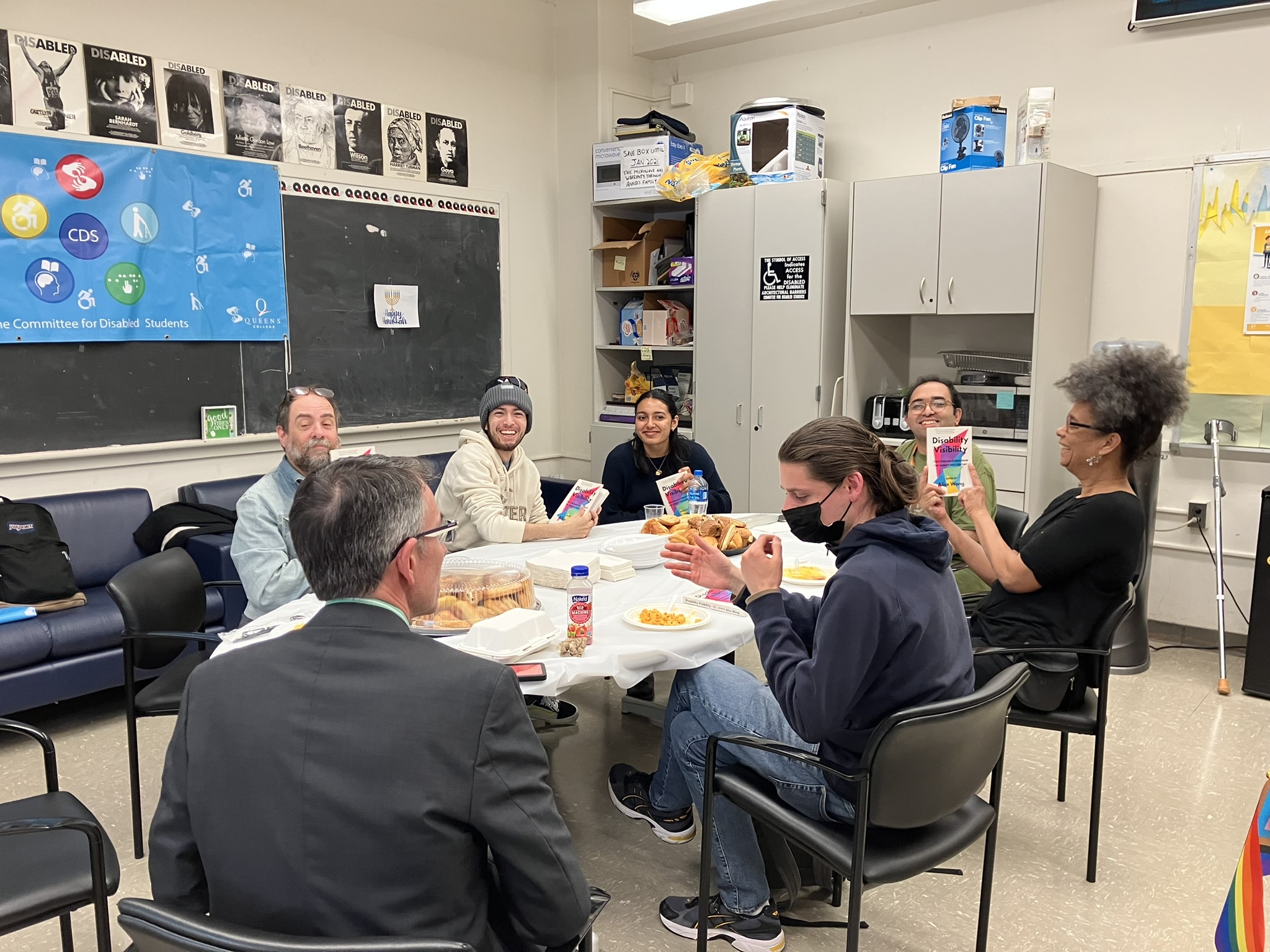According to the 2019 Lee & Low Books Diversity Baseline Survey for the publishing industry, only “11 percent of respondents identify as a person with a disability and 89 percent identify as nondisabled—the highest disparity across their four measures (race/ethnicity, gender, sexual orientation, and disability).” These startling statistics are quoted from the introduction of a collection of essays titled Disability Visibility edited by Alice Wong. On April 24th, the Disability Culture Committee hosted a reading of select essays from the book which sparked a meaningful discussion between disabled and non-disabled attendees about the livid experiences of students with disabilities at Queens College from their own perspectives.
As the statistics exemplify, disabled individuals are often underrepresented in most areas of society and QC is no exception. This event successfully provided students with disabilities at QC a platform to amplify their voices and their presence on campus.
As a student with disabilities who aspires to be a professional writer, I was ecstatic to hear the published works of writers with disabilities read aloud in public. The various essays read helped to dispel the misconception that the experiences of disabled individuals are monolithic when they are in fact extremely diverse. Even though I identify as a member of this community, I still found the event to be eye-opening because I was exposed to new points of view.
For example, one of the essays details the intersectionality between Blackness and disability while another explores the relationship between one’s religious beliefs and their disability. The former highlights the dearth of representation of Black individuals with disabilities in pop culture/media in favor of ones with typically affluent white males. The latter essay discusses how expectations are lowered for disabled individuals in regards to the completion of religious practices and how condescending it feels. Additionally, another essay prompted a discussion of various forms of assistive technology students use inside and outside the classroom.
A fair and balanced approach was taken in the moderation of the discussion. The discussion would have been tedious and ineffective if it solely consisted of students with disabilities pontificating to the non-disabled majority. Instead, it was a public forum where no one was excluded. Non-disabled students played an integral role by talking about how people with disabilities they know in their personal lives have affected them.
Similarly, when discussing the notion of ableism, we stressed how anyone is capable of experiencing it regardless of whether or not someone identifies as disabled. It is purely defined as discrimination against someone for not possessing the ability to do something. That is to say, disability is something that concerns us all in some way shape or form.
This is the first event post-pandemic during the academic year where students with disabilities were afforded the opportunity to have their voices be heard by the larger QC community. The Knight News previously covered the efforts of the Committee for Disabled Students to obtain approval for campus renovations in March 2020.
However, progress came to a halt when the pandemic rendered the conversation moot after transitioning to online instruction. Ever since then, the influence of students with disabilities has waned considerably as they have been among the slowest members of the student body to return to campus understandably due to health concerns. However, the new generation of disabled students at QC have responded enthusiastically to the book event.
Arturo Soto, a sophomore majoring in history and secondary education said, “The book and event shared a common theme and goal: see us, hear us, and feel our stories” and Wesley Allen, a senior majoring in anthropology and environmental science, said, “I also enjoyed conversing with professors on the history and potential future of disability rights, as I think it strengthens the QC community.”
Dr. Lori Yamato, a Comparative Literature professor and constituent of the Disabled Culture Committee, says, “We’ve been dreaming up lists of possible future events and hope that this inaugural semester of disability programming is only the first of many!”











